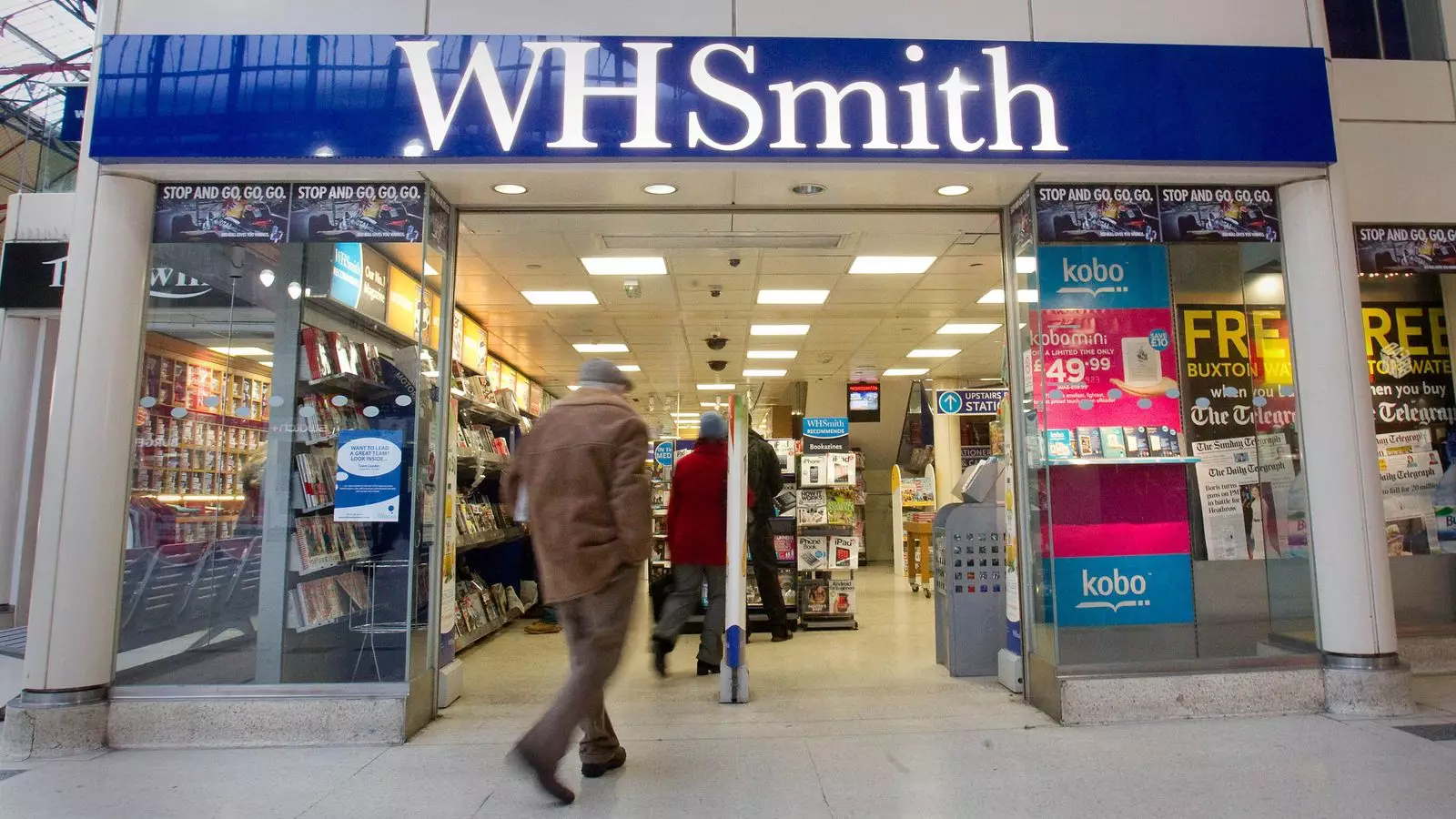WH Smith, a quintessential British retailer with a legacy dating back to 1792, is reportedly engaged in confidential negotiations to divest its entire high street business. This development comes as the company celebrates over two centuries of operation, showcasing both a rich history and a landscape riddled with challenges. The high street, once a bastion of retail prosperity, has faced significant upheaval in recent years. With WH Smith’s high street division employing approximately 5,000 people across 500 stores, this move could signify a pivotal moment not only for the company but also for the broader retail sector in the UK.
As a publicly listed entity with a market capitalization near £1.5 billion, WH Smith’s high street arm has become a point of contention amid discussions about the future viability of traditional retail formats. Recent sentiment indicates that the company’s prospects may lie predominantly within its more lucrative travel retail operations, which include 600 shops in the UK and a global footprint of 1,200 outlets. These shops, located in airports, train stations, and hospitals, are experiencing accelerated growth and account for a staggering 75% of WH Smith’s revenue.
Investors have expressed optimism about the company’s potential strategic pivot. The appointment of Greenhill, a renowned advisory firm, to facilitate the sale process underlines the seriousness of these negotiations. A sale of the high street business could allow WH Smith to concentrate its resources on expanding its travel retail segment—a move many analysts believe would lead to enhanced profitability and operational efficiency.
The rocky terrain of the high street retail environment cannot be ignored. WH Smith’s high street division recorded a rather stagnant operating profit of £32 million last year—an uninspiring figure particularly when juxtaposed against the robust margins enjoyed by the travel business. The company’s high street stores primarily focus on selling books, stationery, and greeting cards, products that face intense competition from online retailers. This relentless shift toward e-commerce has led to a wave of store closures across the country, with WH Smith itself planning to shutter around 15 locations in 2023 as part of an ongoing effort to rationalize its retail footprint.
The case of WH Smith is emblematic of a larger trend affecting many retailers, including once-stalwart brands like BHS and Debenhams, which have unfortunately ceased trading amid retail chaos. The ongoing evolution of consumer habits signifies that remaining relevant in an ever-competitive marketplace is a daunting task for any high street retailer.
What sets WH Smith apart is its dual positioning in both high street and travel retail markets. The travel segment is not only more profitable but is also characterized by its diversified product offerings that include food, beverages, and technology—areas that resonate well with on-the-go consumers. Furthermore, the expansion of the travel retail business in the United States is particularly promising, suggesting that WH Smith’s growth narrative has substantial international reach.
As WH Smith looks to streamline and refine its focus, the implications of its decision to potentially divest its high street arm are significant. A stronger emphasis on travel retail could afford the company the resources needed to capitalize on further expansion opportunities, particularly in high-traffic areas such as international airports and train hubs.
As WH Smith stands at this crucial crossroads, the forthcoming announcement regarding the high street division hints at broader implications for the retail landscape in the UK. The decision to divest could not only reshape the future of WH Smith but also serve as a bellwether for other high street brands grappling with similar challenges. Ultimately, the fate of WH Smith hinges on its ability to adapt and innovate in a rapidly changing retail environment. As this drama unfolds, stakeholders across the spectrum—investors, employees, and consumers—will be watching closely to see how this storied brand navigates its evolution in the modern retail world.

